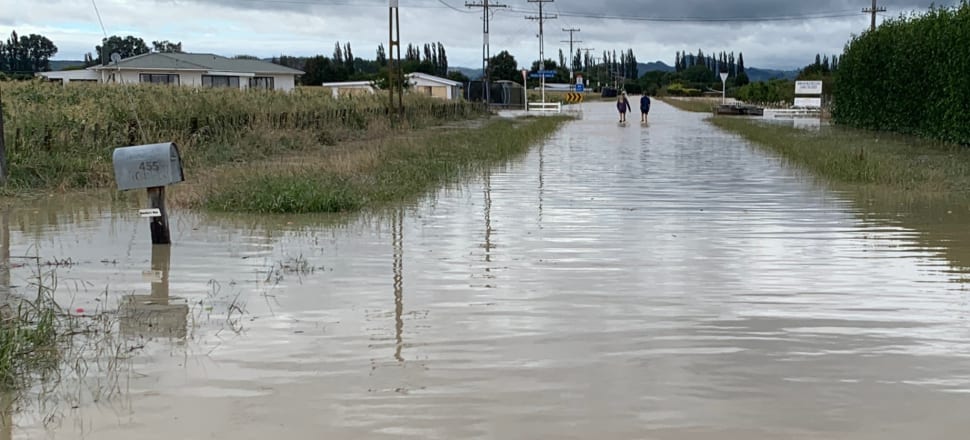
On the day census packs were to begin being hand-delivered to households, Stats NZ withdrew all North Island staff from the field. David Williams reports
Three days after the Christchurch earthquake that killed 185 people, Stats NZ pulled the pin on the 2011 census.
It was only the third to be cancelled – after 1931, because of the Depression, and 1941 during World War II.
“We regret having to take this decision but I’m sure it is the right one,” government statistician Geoff Bascand said on February 25, 2011.
“Census is a crucial part of New Zealand’s information set, it’s an iconic exercise ... this decision has not been taken lightly, we’re conscious of the consequences, the cost and the loss of information.”
READ MORE: * Census 2023: Getting the count right * Big bump in pay for census field staff
Statistics Minister Maurice Williamson said it was unthinkable to ask Cantabrians to take part. But he and Bascand raised another important issue.
Stats NZ’s Christchurch office was seriously damaged and access restricted, while its census building in the suburb of Riccarton, near the university, was also damaged.
“There has been significant disruption to Statistics New Zealand’s Christchurch operations that would affect the department’s ability to safely and accurately complete the census,” Williamson said.
(The census was re-scheduled for 2013.)
Stats NZ’s dilemma about how best to undertake this year’s census – census day is scheduled for March 7 – has parallels with, and differences from 2011.
Days after Cyclone Gabrielle hit, as the damage and devastation has become clearer, it must be unthinkable to run a census in areas still cleaning up or recovering. However, the census operation in Christchurch, like the rest of the South Island, is unaffected.
Still, the cyclone has caused huge disruption already.
On Monday of this week, the day census packs began to be hand-delivered to households, Stats NZ withdrew all North Island staff from the field.
The next morning, the Government declared a national emergency in six regions – Northland, Auckland, Tairāwhiti, Bay of Plenty, Waikato, and Hawkes Bay – adding Tararua in the afternoon.
In a statement on Wednesday night, which, strangely, did not quote anyone, Stats NZ didn’t rule out census delays to the worst-affected areas.
It was working with the National Emergency Management Agency and other government agencies to understand the cyclone’s impacts, the statement said, and engaging with “partners, stakeholders, and census teams on the ground” to understand “community sentiment” about completing the census.
The statement said: “Further decisions regarding the approach and timing of census collection operations in the North Island will be made when more information is known about the impacts of Cyclone Gabrielle on affected communities under a National State of Emergency.”
Statistics Minister Deborah Russell confirmed yesterday: “No decisions about a deferral have been taken.”
Which, of course, confirms a deferral is being considered.
“A clear plan is required from the minister – and it needs to be a go, no-go decision.” – Simon Watts
National’s statistics spokesperson, North Shore MP Simon Watts, agrees the $259 million survey should go ahead, but calls for greater clarity from Stats NZ and the minister.
“Based on on what we know, our view is ... the process and the census should be continuing as planned.” Assessments of flood and storm damage will be clearer next week but, he notes, the majority of the country is unaffected.
Watts says there needs to be consideration of whether it’s appropriate to run the census in the worst-affected areas. (He names Hawkes Bay-Tairāwhiti, and western parts of greater Auckland, in particular.)
Perhaps time extensions should be considered, he suggests.
“A clear plan is required from the minister – and it needs to be a go, no-go decision.”
The census has been cursed by natural events, and the pandemic, in recent years.
Preparations for 2018 were jolted by the 2016 Kaikōura quake, which put IT systems offline and severely damaged Stats NZ’s Wellington headquarters. Field testing in April 2017 was curtailed when a state of emergency was declared in flooded Whanganui. This contributed to the 2018 census being such a debacle.
In the lead-up to the latest edition, Covid-19 diminished field tests in Hamilton and Huntly in 2021, and, last year, a dress rehearsal in parts of Auckland and Tauranga was undertaken in the red light setting.
(Back to the 2011 quake, it’s interesting to compare details. That census, before it was delayed, was budgeted to cost $90 million over its five-year cycle, and involve 7000 collectors. This year’s exercise has a budget of $259 million, and will involve about 3600 collectors, 70 percent of whom will be full-time.)
Watts, the National MP, says the Government has been clear in the lead-up to the census it will have the appropriate workforce in place, and it has put significant focus into areas of New Zealand – such as rural and provincial areas, and those with large Māori and Pasifika populations – will be better served than they were in the disastrous 2018 census.
Last week, the minister was confident the census would be a success. Says Watt: “The proof will be in the pudding.”







